Pension Isa, our guesthouse in Mostar, is located in a narrow alleyway just off the main street, which is not very big itself. It is a tiny, unassuming alleyway, very easy to miss unless you are looking for it. The balconies overhanging the opposite walls are so close together that they almost touch each other overhead.
Residents sit out on their balconies in the soaring heat of another July day. It is a normal, tranquil street.
So why are the gates and walls riddled with bullet holes?
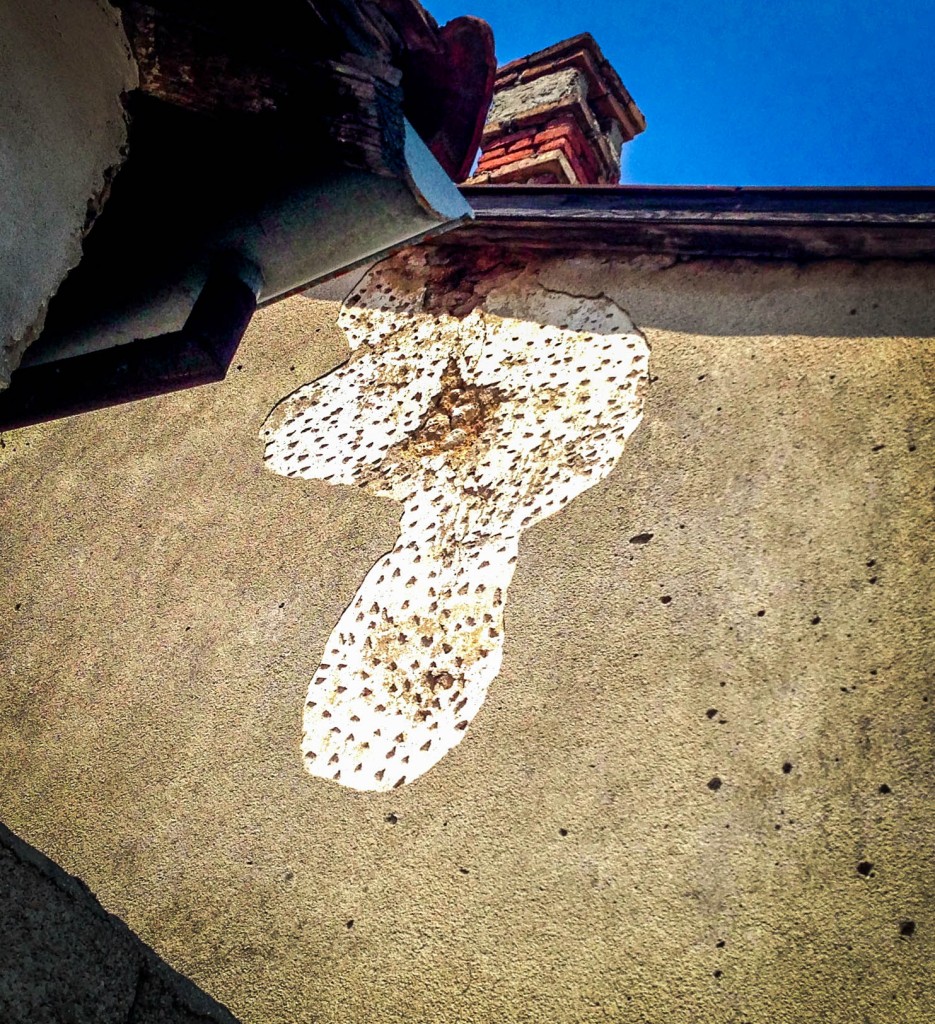
I had started to put together the pieces of the war in Belgrade and Sarajevo, but I didn’t yet know Mostar’s story. After visiting Sarajevo, I couldn’t believe that the fighting could be even worse, yet Mostar saw some of the most violent fighting of the war. We had seen bullet holes in Sarajevo, but with time, effort, and money the city has begun to repair itself—particularly in the popular Turkish Old Town area. The scars are there—if you look for them.
But in Mostar you don’t need to search, the scars are everywhere you look: silently screaming ‘Never Forget’.
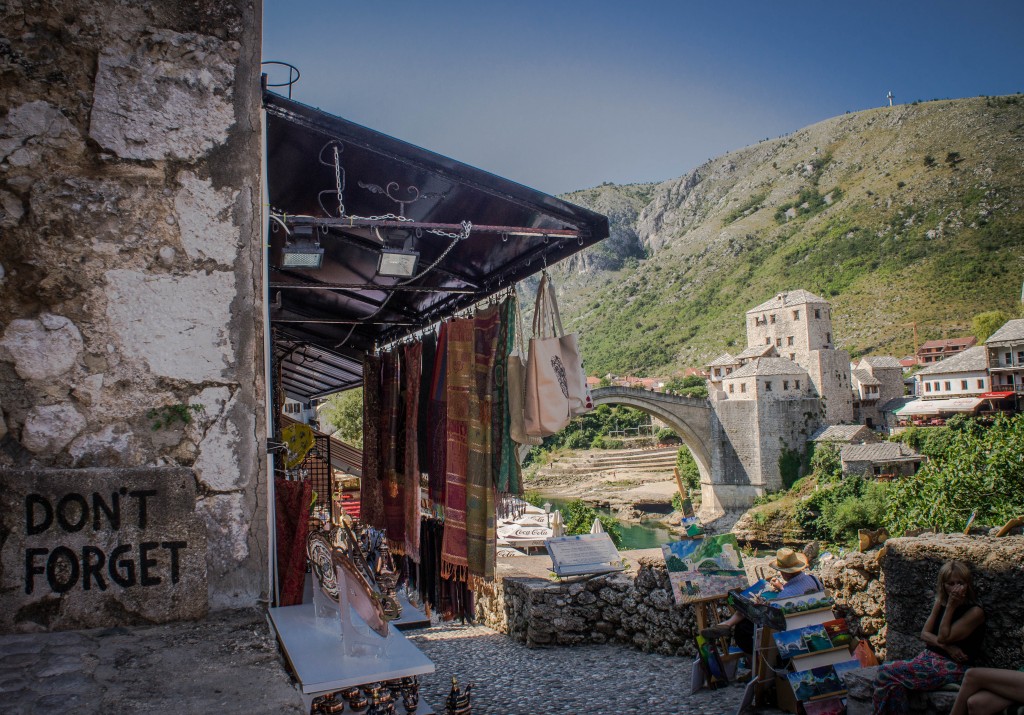
Here we were in Mostar in a tiny street—the most unlikely setting for such violence. The soldiers could barely have walked this alleyway side-by-side. Why were they shooting at innocent, peaceful people in their own homes? The madness is incomprehensible.
Our hostess was the most welcoming woman I have ever met on my travels. She didn’t speak a word of English, but had written down some phrases in a notebook and read them to us carefully:
“Welcome to Pension Isa. I hope you have nice time in my home.”
Did she live here 18 years ago, in this house? Was she cowering inside when the soldiers came and opened fire? Does she remember the day those bullets ripped her walls apart? I wanted to ask her, yet at the same time I respected the way that she, and all Bosnians, have moved on from tragedy too terrible for me to imagine: even when the reminders are seared into their own walls.
Of course, I couldn’t ask her—the English phrases wouldn’t be written in her book. Besides, her main desire was to make foreigners feel welcome in her beautiful home and her beautiful city; a city enjoying the present—not dwelling on the past.
Because Mostar is a beautiful city—a city that has so much more to offer than a tour of Europe’s darkest moments.
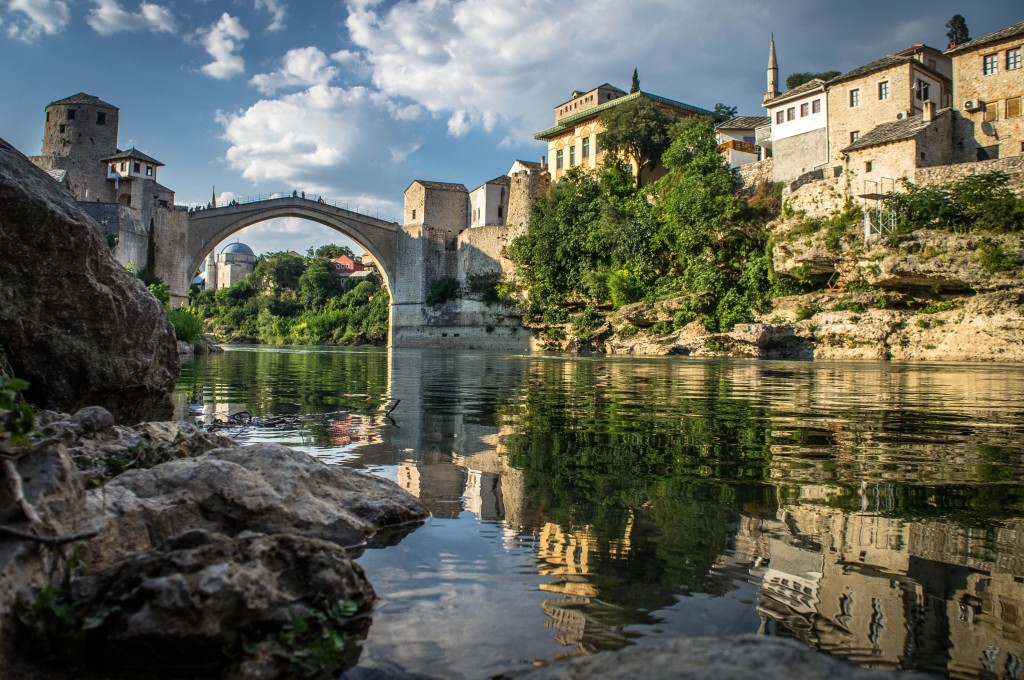
Where else can you watch courageous men sporting tiny speedos dive gracefully into glacial waters from one of the most picturesque bridges in Europe, while gleeful tourists take photos and offer money for the entertainment?
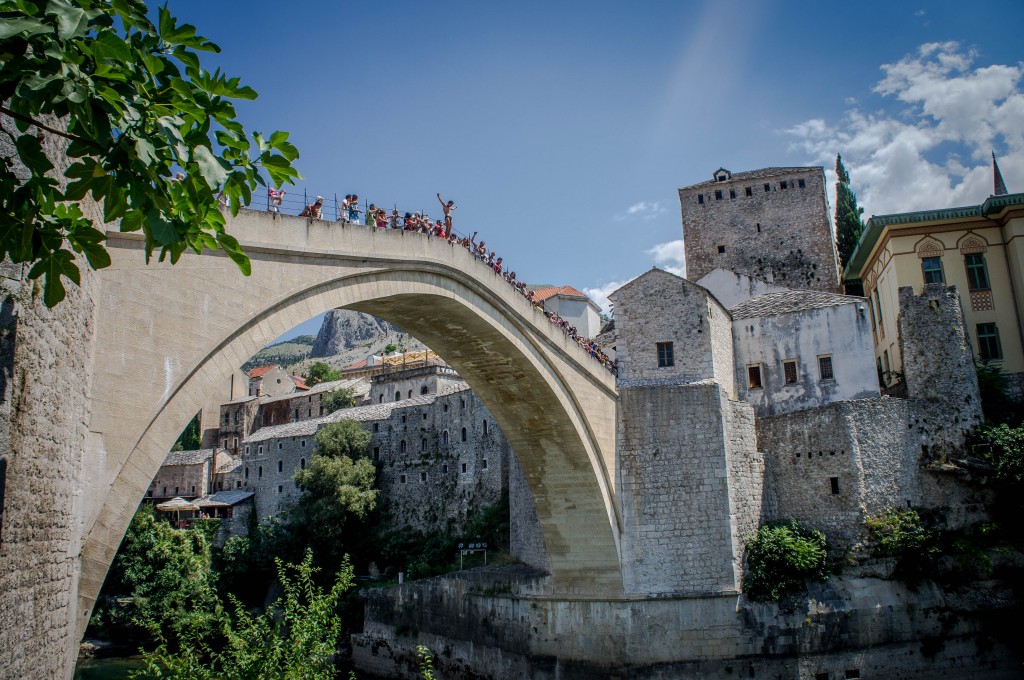
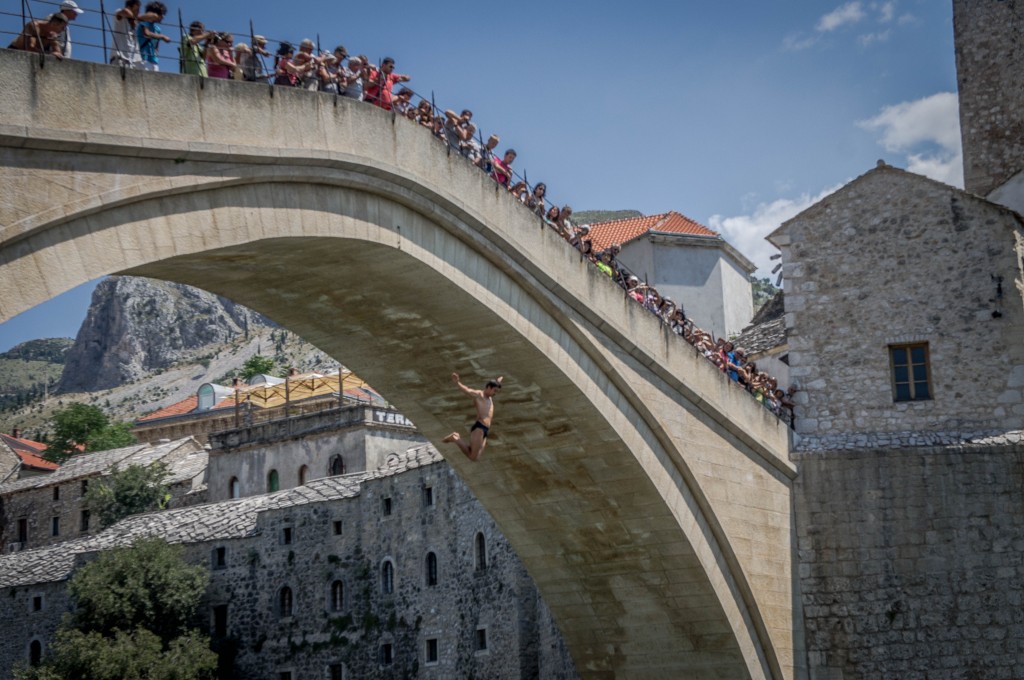
Where else does the water run so deep, so clear, so pure?
Where else can you sit in a terraced café, eating incredible food and feeling like you have been transported back 100 years or so? 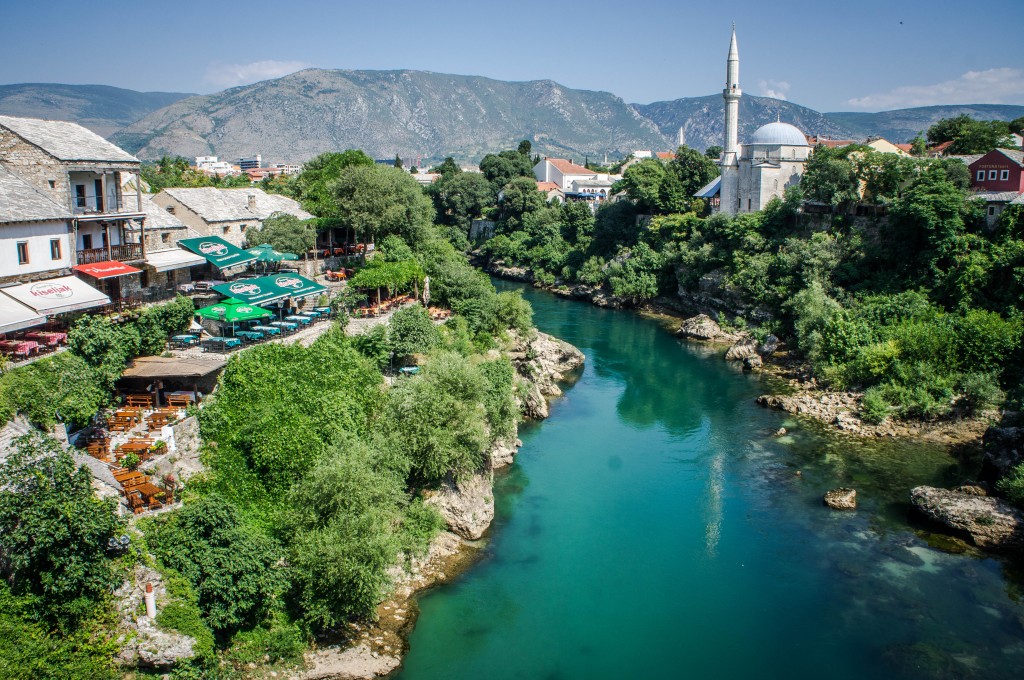
I don’t know if the war has made Bosnian people the most friendly and welcoming people in the world—or whether the war happened to the most friendly and welcoming people in the world, but either way Bosnian warmth and hospitality has made it one of my very favourite countries, and I can’t wait to go back.
Where have you received the warmest welcome on your travels?

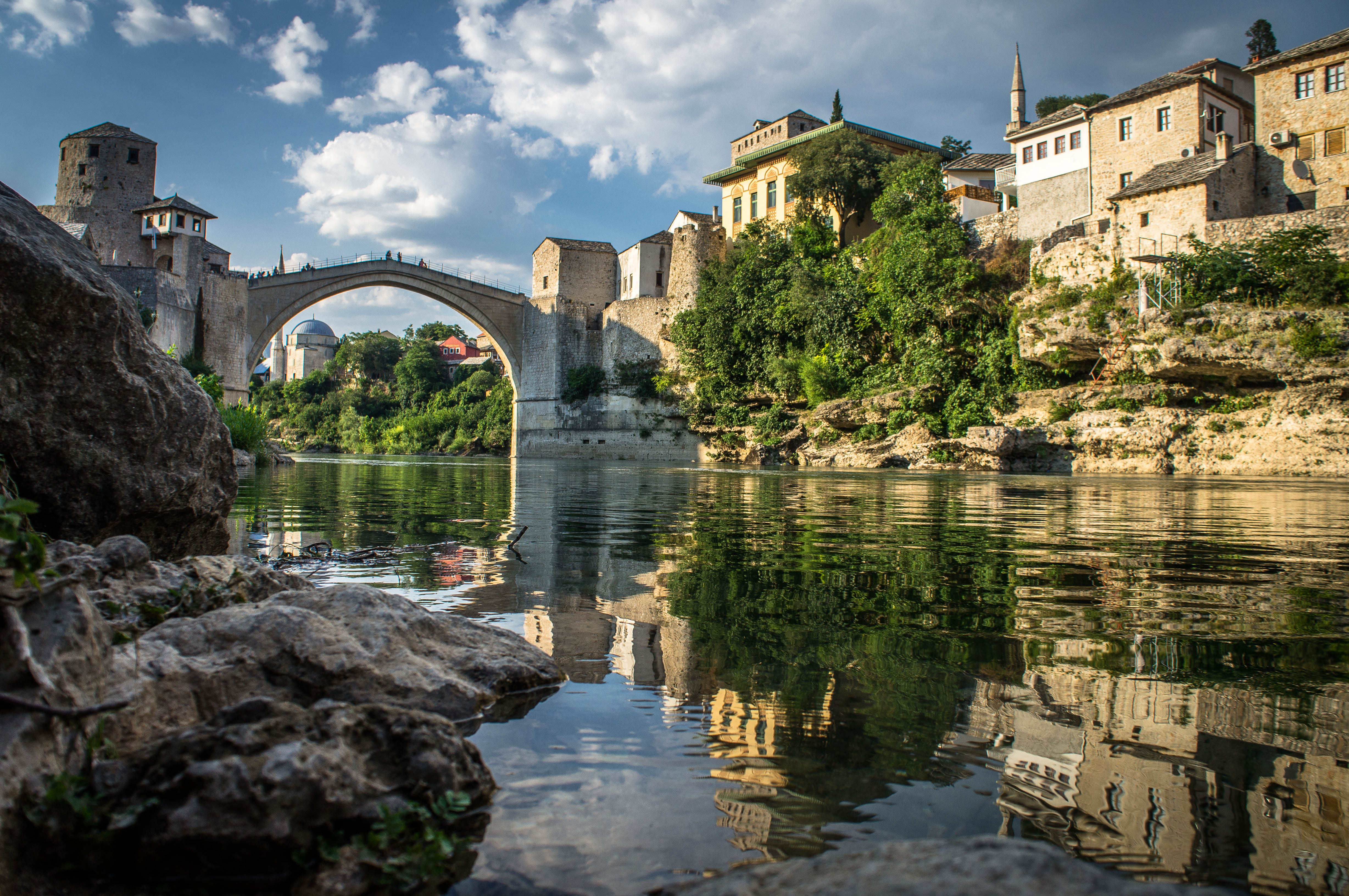
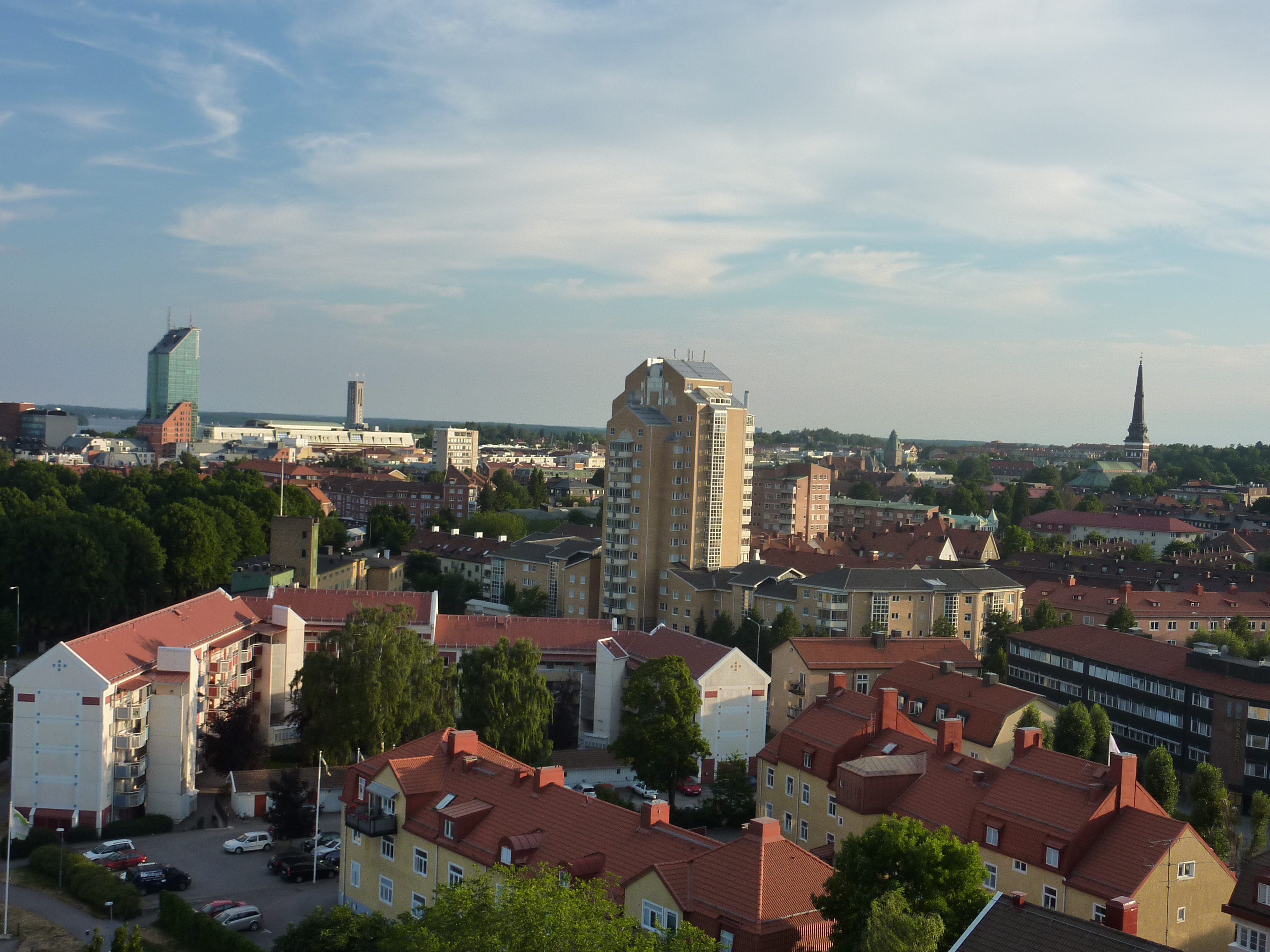
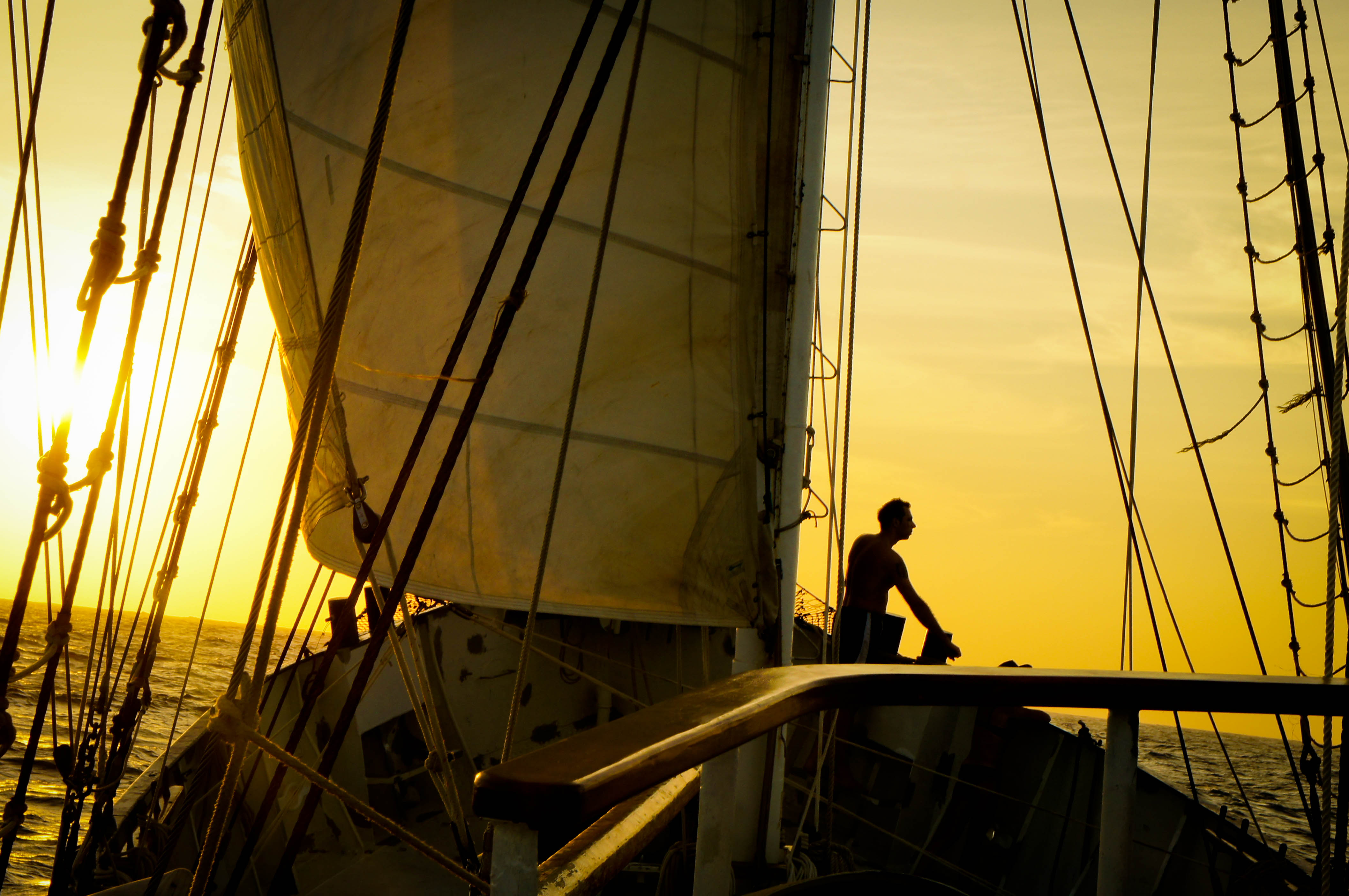

You weave a wonderful story about Bosnia and its people. Thanks for sharing these very personal insights.
Thank you very much. Your comment has put a smile on my face this morning, it’s so great to hear from a reader who has enjoyed my posts!
Have a wonderful day.